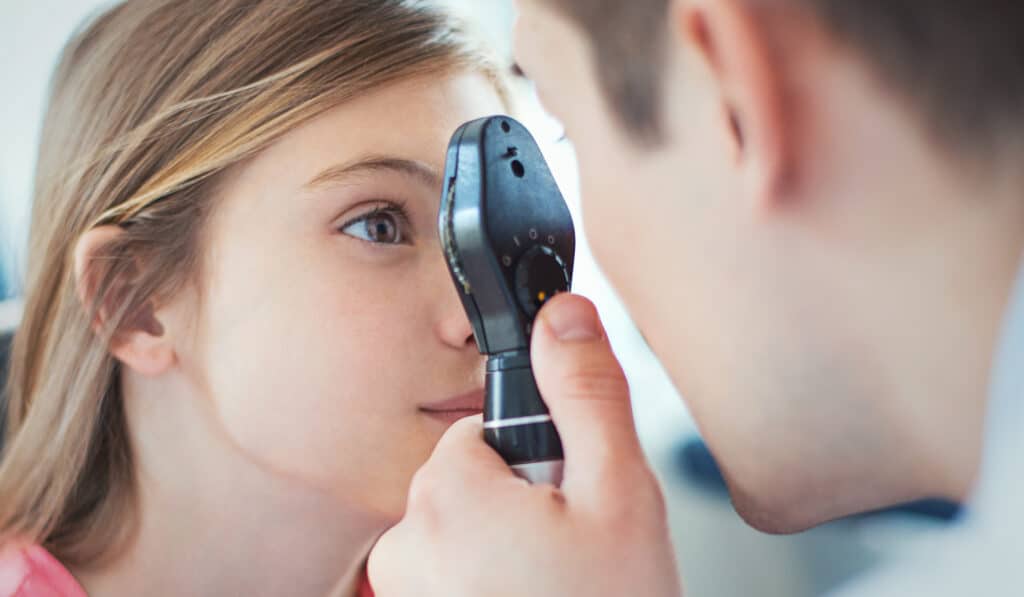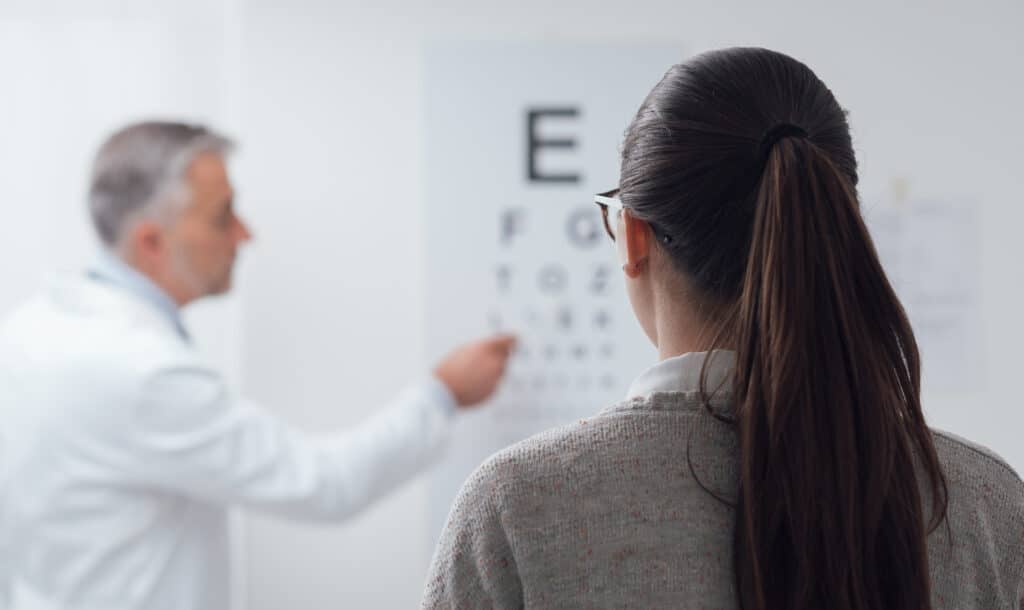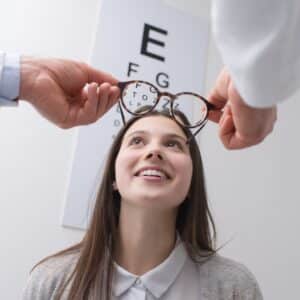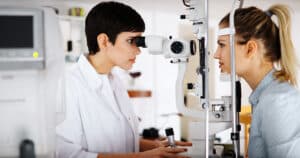Comprehensive Eye Exam in North Attleboro & North Dartmouth, MA

WHEN SHOULD YOU GET A COMPREHENSIVE EYE EXAM?

WHAT IS A COMPREHENSIVE EYE EXAM?
SCHEDULE YOUR APPOINTMENT TODAY
An eye exam is different from a vision screening, which only tests vision and is commonly performed by a school nurse, pediatrician or other health care provider. Only an eye doctor can perform a comprehensive eye exam to evaluate the overall health of the eye and detect any changes that may indicate a vision disorder. During a routine eye exam, the doctor will evaluate the eyes for refractive errors, as well as common conditions such as:
- Amblyopia
- Strabismus
- Eye Tracking
- Presbyopia
- Glaucoma
- Diabetic Retinopathy
This is done through a series of eye tests that examine all aspects of the eye and may include:
- Visual Field Test
- Dilation
- Glaucoma Test
- Slit-lamp Examination
- Cover Test
- Retinoscopy
- Refraction
These tests are performed in the doctor’s office and are safe for all patients.
TREATMENT AFTER A COMPREHENSIVE EYE EXAM

SCHEDULE YOUR APPOINTMENT TODAY
- A prescription for eyeglasses or contact lenses
- Medication
- Vision therapy
- Eye vitamins
- Vision supplements
- Surgery
What conditions can be detected during an eye exam?

- Myopia, also known as nearsightedness or shortsightedness, is a condition of the eyes in which nearby objects are clear and distant objects appear blurry. Almost a third of people in the United States experience some degree of nearsightedness.
- Hyperopia, also known as farsightedness, a condition of the eyes where the focus on distant objects is better than the focus on objects closer to the eye, so nearby objects appear blurry. The eye is designed to focus images directly on the surface of the retina; with hyperopia, light rays focus behind the surface of the retina, producing a blurry image.
- Astigmatism occurs when the cornea – the clear covering over the eye – is slightly irregular in shape, preventing light from focusing properly on the retina in the back of the eye. With astigmatism, some of that light focuses either in front of or behind the retina, resulting in vision that may be blurry for either near or far vision or, for all objects.
How Are Various Eye Conditions Treated?
All of these vision conditions can be effectively treated with either eyeglasses or contact lenses. Eyewear may be used during certain activities, such as watching television or driving, or at all times. Our patients are given a wide selection of eyeglass frames, lenses and contact lenses to choose from in our Optical Shop. A full-service lab is available to prepare the lenses for patients while they wait.


